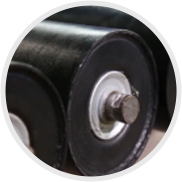 Afrikaans
Afrikaans  Albanian
Albanian  Amharic
Amharic  Arabic
Arabic  Armenian
Armenian  Azerbaijani
Azerbaijani  Basque
Basque  Belarusian
Belarusian  Bengali
Bengali  Bosnian
Bosnian  Bulgarian
Bulgarian  Catalan
Catalan  Cebuano
Cebuano  Corsican
Corsican  Croatian
Croatian  Czech
Czech  Danish
Danish  Dutch
Dutch  English
English  Esperanto
Esperanto  Estonian
Estonian  Finnish
Finnish  French
French  Frisian
Frisian  Galician
Galician  Georgian
Georgian  German
German  Greek
Greek  Gujarati
Gujarati  Haitian Creole
Haitian Creole  hausa
hausa  hawaiian
hawaiian  Hebrew
Hebrew  Hindi
Hindi  Miao
Miao  Hungarian
Hungarian  Icelandic
Icelandic  igbo
igbo  Indonesian
Indonesian  irish
irish  Italian
Italian  Japanese
Japanese  Javanese
Javanese  Kannada
Kannada  kazakh
kazakh  Khmer
Khmer  Rwandese
Rwandese  Korean
Korean  Kurdish
Kurdish  Kyrgyz
Kyrgyz  Lao
Lao  Latin
Latin  Latvian
Latvian  Lithuanian
Lithuanian  Luxembourgish
Luxembourgish  Macedonian
Macedonian  Malgashi
Malgashi  Malay
Malay  Malayalam
Malayalam  Maltese
Maltese  Maori
Maori  Marathi
Marathi  Mongolian
Mongolian  Myanmar
Myanmar  Nepali
Nepali  Norwegian
Norwegian  Norwegian
Norwegian  Occitan
Occitan  Pashto
Pashto  Persian
Persian  Polish
Polish  Portuguese
Portuguese  Punjabi
Punjabi  Romanian
Romanian  Russian
Russian  Samoan
Samoan  Scottish Gaelic
Scottish Gaelic  Serbian
Serbian  Sesotho
Sesotho  Shona
Shona  Sindhi
Sindhi  Sinhala
Sinhala  Slovak
Slovak  Slovenian
Slovenian  Somali
Somali  Spanish
Spanish  Sundanese
Sundanese  Swahili
Swahili  Swedish
Swedish  Tagalog
Tagalog  Tajik
Tajik  Tamil
Tamil  Tatar
Tatar  Telugu
Telugu  Thai
Thai  Turkish
Turkish  Turkmen
Turkmen  Ukrainian
Ukrainian  Urdu
Urdu  Uighur
Uighur  Uzbek
Uzbek  Vietnamese
Vietnamese  Welsh
Welsh  Bantu
Bantu  Yiddish
Yiddish  Yoruba
Yoruba  Zulu
Zulu Conveyor Components Manufacturing Solutions for Efficient Material Handling Systems
The Importance of Conveyor Parts Companies in Modern Industry
In today's fast-paced industrial landscape, efficiency and reliability are paramount. Conveyor systems have emerged as a cornerstone of modern manufacturing and logistics, enabling the swift movement of goods and materials. At the heart of these systems are conveyor parts companies, which play a vital role in ensuring that conveyor systems operate smoothly and efficiently. This article explores the significance of conveyor parts companies, the types of components they provide, and their impact on various industries.
The Role of Conveyor Parts Companies
Conveyor parts companies specialize in the design, manufacturing, and distribution of various components essential for conveyor systems. These components include belts, rollers, pulleys, bearings, and motor drives, among others. The primary goal of these companies is to provide high-quality parts that not only meet the specific needs of their clients but also enhance the overall performance of conveyor systems.
A reliable conveyor system is crucial for minimizing downtime and maintaining productivity. Any failure or malfunction in the conveyor system can lead to significant delays in operations, resulting in increased costs and reduced efficiency. Conveyor parts companies help mitigate these risks by offering durable, innovative, and customized solutions tailored to the unique demands of different industries.
Types of Components Offered
Conveyor parts companies supply a wide array of components that cater to various applications
1. Conveyor Belts These are the most visible part of a conveyor system, transporting materials along a defined path. Conveyor parts companies offer different types of belts, including modular plastic belts, fabric belts, and metal belts, each designed for specific applications, from heavy-duty material handling to delicate packaging.
2. Rollers Rollers facilitate the movement of the conveyor belt and vary in size, material, and design. Conveyor parts companies provide gravity rollers, powered rollers, and special configurations suited for specific environments, ensuring smooth and efficient transportation.
conveyor parts company

3. Pulleys Essential for belt support and tensioning, pulleys help maintain the belt's alignment and prevent slippage. Companies design pulleys that are strong, lightweight, and resistant to wear and tear.
4. Bearings Bearings reduce friction and support rotating shafts in conveyor systems. High-quality bearings ensure smooth operation and longevity, which is critical in high-speed environments.
5. Motor Drives These components provide the necessary power to move the conveyor belt. Conveyor parts companies may offer electric, hydraulic, or pneumatic motor drives tailored for various loading capacities and operational conditions.
Impact on Different Industries
Conveyor parts companies serve a diverse range of sectors, including manufacturing, food processing, warehousing, and logistics. In the manufacturing sector, efficient conveyor systems equipped with high-quality parts can dramatically increase throughput. In food processing, hygiene considerations are paramount; therefore, conveyor parts must adhere to stringent safety regulations. Conveyor parts companies develop food-grade belts and corrosion-resistant components designed specifically for these challenges.
In logistics and warehousing, conveyor systems facilitate the quick sorting and redistribution of goods, significantly enhancing supply chain efficiency. This sector has seen a surge in the adoption of automation, driving demand for advanced conveyor solutions. Conveyor parts companies are at the forefront of this technological evolution, supplying components that support automated systems, including robotics and AI-driven sorting technologies.
Conclusion
Conveyor parts companies are indispensable players in the contemporary industrial ecosystem. Their contributions ensure that conveyor systems remain reliable, efficient, and capable of meeting the increasing demands of modern production and distribution environments. By providing high-quality components and customized solutions, these companies not only enhance the operational capabilities of their clients but also support economic growth and innovation across various sectors. As industries continue to evolve and automate, the role of conveyor parts companies will undoubtedly become even more critical, making them a key partner in the quest for efficiency and excellence.
-
Revolutionizing Conveyor Reliability with Advanced Rubber Lagging PulleysNewsJul.22,2025
-
Powering Precision and Durability with Expert Manufacturers of Conveyor ComponentsNewsJul.22,2025
-
Optimizing Conveyor Systems with Advanced Conveyor AccessoriesNewsJul.22,2025
-
Maximize Conveyor Efficiency with Quality Conveyor Idler PulleysNewsJul.22,2025
-
Future-Proof Your Conveyor System with High-Performance Polyurethane RollerNewsJul.22,2025
-
Driving Efficiency Forward with Quality Idlers and RollersNewsJul.22,2025





























